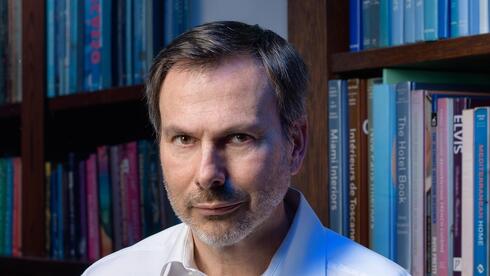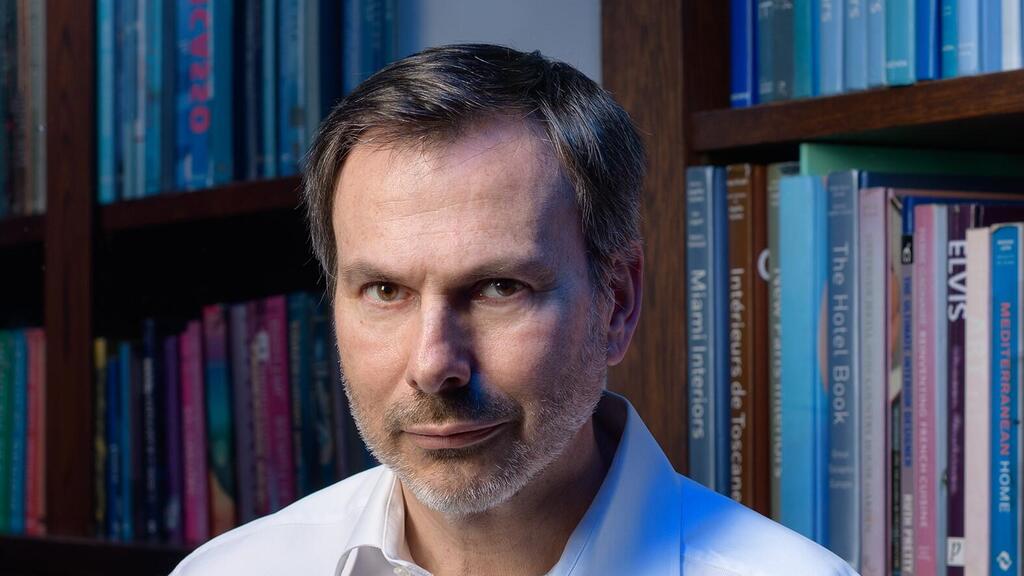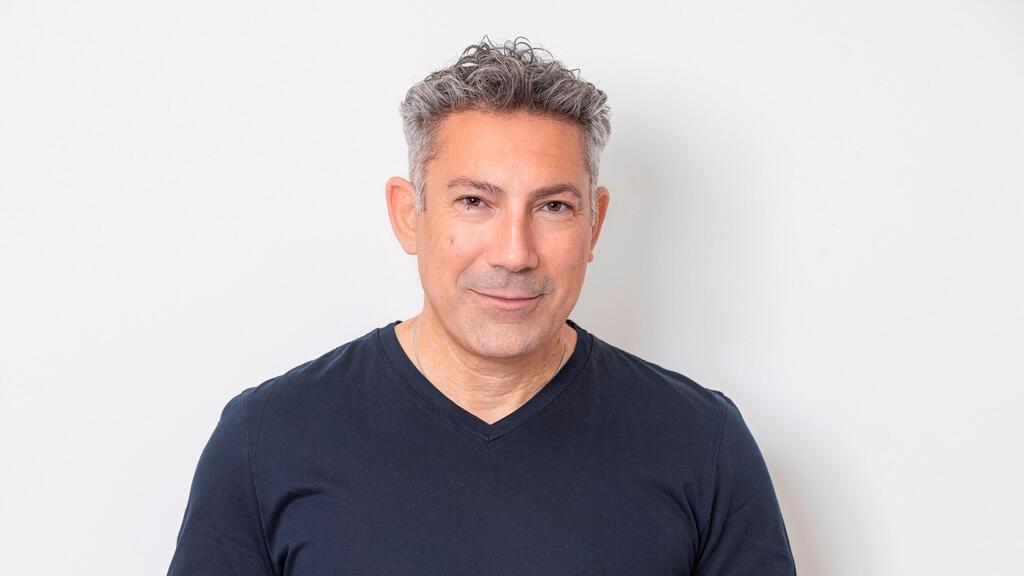
Israel urged to dump ‘Hasbara’, instead pivoting to highlight its place in the world
“It's become a brand, a symbol of the kind of country that people don't want around the place,” says policy advisor Simon Anholt
“Israel got here by not giving the rest of the world too many reasons to feel glad that it exists,” said policy advisor and creator of Nation Branding, Simon Anholt. “Israel is perceived as being a source of trouble, a source of turbulence. So that's the reason why it ranks low. People don't feel glad that it exists, unless they're Jewish, of course.”
Anholt made the remarks to CTech ahead of Calcalist’s Mind The Tech conference in London, where he is expected to take the stage to discuss the art of Nation Branding and how to turn challenges into opportunities.
He runs Anholt & Co., a government advisory practice that for more than 20 years has worked with presidents, prime ministers, monarchs, and governments of over 60 countries, cities, and regions. It also works with tourist boards, trade and investment promotion agencies, cultural departments, and other bodies to help them engage more productively and imaginatively with the international community. He has written six books about countries and their images in the world based on primary research that they can only truly be influenced by policies and projects, as opposed to messages and markets. His TED Talk on the subject has amassed more than 12 million views, its all-time most-viewed talk in the Governance category.
Recently, Anholt has also signed on as a freelance consultant to Brand Israel Inc., a private and commercial enterprise designed to lead the strategy and implementation through a syndicate of strong partners such as the government, academia, the technology-business sector, and the Jewish world in the diaspora. Founded by Motti Scherf, CEO and Owner of Scherf Communications, it is funded largely through donations - seen as ‘investments’ - designed to focus on those in the Western world aged 18-30 who need convincing that Israel “has the innovation, creativity, and technologies” to tackle some of today’s biggest challenges: climate change and the potential harms of AI. Its primary strategic approach relies on convincing people that even though Israel may be a source of conflict in a specific region for “millions”, it can “provide a solution for billions” if allowed to cooperate with other countries through industry, trade, and export.
“One of the things that the research tells us very clearly is that the least bad part of Israel's image has always been its technology and its products,” Anholt explained. “So that's where we start. But at the same time, we're going to be talking to as many other stakeholder groups as we can find in academia, in the culture, in cities, in tourism, and in government as well.”
In 2005, Anholt launched the Anholt Nation Brand Syndicate which measures global perceptions of the country across dimensions such as culture, governance, people, exports, tourism, investment, and immigration. He is also the founder of the Good Country Index, which measures how much each country contributes to the planet and the human species through policies and behaviors (Israel ranked 45th as of 2020).
Today the Anholt-Ipsos Nation Brands Index collects over 60,000 interviews online in 20-panel countries with adults aged 18 or over every year. It then produces an overall score that determines the perceptions of nations worldwide. This year, Israel is ranked 46th out of 50 on a scale of overall brand image compared to other countries. Brand Israel hopes to replicate the successful reinvention of other countries before it, like Saudi Arabia and South Korea who each embarked on years-long campaigns to shift public opinion of their images. One of the main areas Israel can help rebrand its reputation is by reaffirming to the world that it can offer societies non-political, world-class technology, similar to Japan and Germany in the post-war era. These countries now dominate the top two rankings on the index consistently each year.
As a Christian who tries to remain “vigorously and potentially even aggressively neutral on the political level” in assessing how Israel can improve its rank, Anholt is approaching the challenge because “Israel has got a bigger problem than pretty much any other country at this moment.” He explained that traditional ‘Hasbara’ efforts are largely in vain since most people see it as “cursed state propaganda.” Instead, countries are more likely to succeed in efforts when they remind the world of their values and contributions to the world. The company hired Anholt to help with its aim to boost Israel’s reputation among other nations following his career helping other countries like the UK, Chile, Afghanistan, the UAE, and Sierra Leone, among many others.
“We're trying to do something good. We're trying to bring a new approach to the complex situation of the image of Israel,” said Scherf. “We are going to approach this with solutions that Israel can bring to make the world a better place… Israel should look like she's trying to be part of a community of nations that is doing good for the world.”
For several years, there was very little change in how people perceived other countries, except for the USA whose ranking might vary over the years as its leadership changes. However, the last five years have seen more volatility in the rankings in large part due to social media and its effect on users. Anholt also says that recent years have seen “the world truly splitting in two” when it comes to the West and its views on globalization vs. the East and its resentment for it. Israel may crave approval and help from allies in Europe or America, but its popularity among ‘non-aligned’ countries across Asia such as Russia may make it admired “by the wrong crowd” in the years ahead.
Generally, Scherf and Anholt understand three primary challenges in the work to raise Israel's brand: resources and budgets for the project, which the government cannot allocate; to ensure generational reputation change through 10-15 years of continuous work; and high-level execution of plans to exercise lasting difference. “One thing we can promise is that our approach will be completely different from what has been tried so far,” added Scherf.
These efforts are being made at the private level, but everyday citizens can also help reform Israel’s national brand and break away from the symbol it has unwittingly become. “It's become a brand, a symbol of the kind of country that people don't want around the place,” Anholt explained. “The more evidence that citizens can show how Israel is a vibrant democracy with many powerful differences of opinion, and that not every single Israeli person believes in war… The closer Israel will become to being recognized as an ordinary country and not a kind of symbol."
However, not all Israelis have reason to rely heavily on an improved Nation Brands score to seek acceptance from other countries. First, many of the data points used for scores are taken from official UN figures, an organization often scrutinized by Israelis and accused of political bias. Additionally, much of the methodology is measured in its relationship to a country’s Gross Domestic Product - where “critiques of GDP are as old as GDP itself.” Nonetheless, efforts from Brand Israel are intended to achieve one primary goal: to transform the country into a nation that knows how to cooperate with other countries on the world's pressing issues.
“This is basically corporate social responsibility at the level of the nation-state,” concluded Anholt. “Corporate social responsibility is the idea that you demonstrate you're a useful member of society. That improves your image and improving your image improves your business. That is as true for countries as it is for corporations,” he said.
First published: 11:54, 03.09.24















